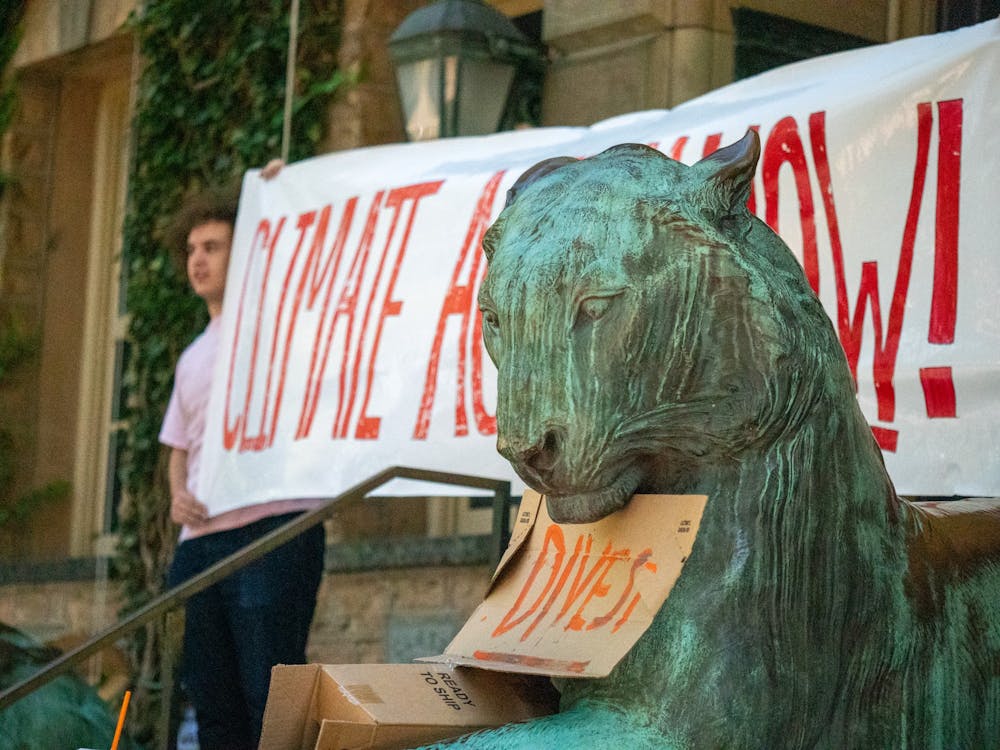In her Oct. 1 column, “The cult of exclusivity,” Katherine Zhao discusses how the Princeton experience can often feel like “getting hit by a long string of rejections.” She laments that Princeton’s culture has the habit of excluding students from the exact extracurricular activities they had once thought they had excelled at in high school. If we think about it, this culture prevails even in the academic sphere of Princeton students’ lives.
While walking out of Frick Chemistry Laboratory after having finished an organic chemistry lab, I saw a friend of mine huddled over her laptop, looking fairly morose and a bit beaten up. She started venting about how she had bombed her physics midterm, subsequently decided to drop the course and was now deliberating whether or not it would be worth it for her to continue being an engineer. Watching her feel as though she had failed at what she had originally set out to do at Princeton, I began to question the unforgiving nature of Princeton’s education system and the system of other similarly rigorous universities. Prerequisites, such as PHY 103: General Physics I, should be more like introductory or skill-teaching courses that allow us to venture off and explore the myriad of departmentals and electives the University has to offer. However, for many majors, they become checkpoints of “go” or “no go” — determinants for whether or not the student believes he will be able to succeed in the department based on his own performance and in comparison with his peers due to grade deflation.
But it really shouldn’t be this way. If a student is in love with a department and sincerely hopes to join it, then prerequisite classes should not convince the student that the department will be too overwhelming and therefore undesirable. After all, even though Princeton is a challenge, it’s such a shame when the level of difficulty of prerequisite classes dissuades the student from delving beyond the preliminary and studying what he is truly interested in. The truth is that every major has its challenges — that one class that nearly everyone stresses over and pulls all-nighters for just to survive. But students shouldn’t feel completely deterred from a department, and a class should never make a student feel as if he has to give up altogether because he is not matching up to his classmates. Regardless of how the University perceives itself, number 1 status and all, it should still acknowledge that its students won’t constantly be at the top of their game in every class — and it’s not the end of the world if this happens.
Having written columns on mental health on campus and what students have experienced after making the difficult decision to withdraw for a year due to academic struggles, I realized that Princeton doesn’t really give students a second chance should they run into problems with workload and class performance. With so many limitations, even the pass/D/fail option could hardly be considered a second chance either, especially as it cannot be used for classes in one’s major.
I’m not saying we should expect less of ourselves or that it’s okay to downplay unsatisfactory grades. However, I do think that there should be a greater emphasis on the value of learning and internalizing information — even if it takes time or repetition — rather than on one’s success relative to others. For example, as a student who regrettably tanked the first time she took the first semester of organic chemistry, I didn’t feel as though others would understand my desire to try it again during my sophomore spring. My thinking was that I didn’t want to walk away from the class having learned nothing, or rather having learned that I didn’t have it in me to understand the material. Considering that our time at Princeton is so limited and valuable, I wasn’t okay with the possibility that I might leave Princeton having wasted a class. And looking back, I realize that it was right of me to think this way — that I was appreciating the extraordinary opportunity to be educated by exceptional professors in challenging courses. But no one else, at that time, had assured me that it was legitimate and acceptable for me to ask for a second chance.
Princeton can do this so simply by changing its culture and reformatting the expectations that students force upon themselves, such as by bringing up the fact that it’s okay to drop a class and take it again when we feel more ready, saying that the typical paths of study are recommended but not required (especially considering that no student here is really “typical”) and recognizing that a failed grade on an exam doesn’t equate to being a failure. Our time at Princeton shouldn’t be about realizing everything that we don’t or can’t do. It should be about taking advantage of new opportunities and shaping what we do based on what we now know about ourselves. Because if it’s not that, then it’s just a waste of what could have potentially been a really good time.
Isabella Gomes is a sophomore from Irvine, Calif. She can be reached at igomes@princeton.edu.









